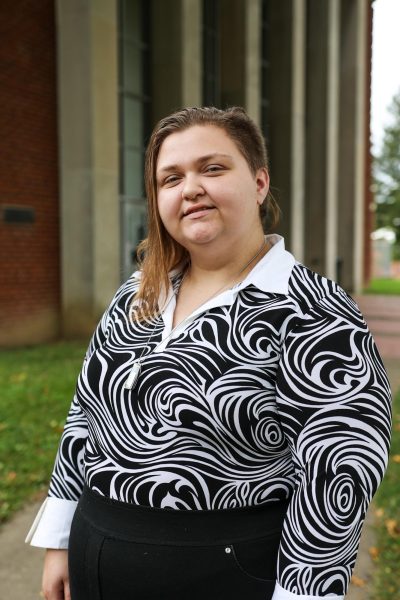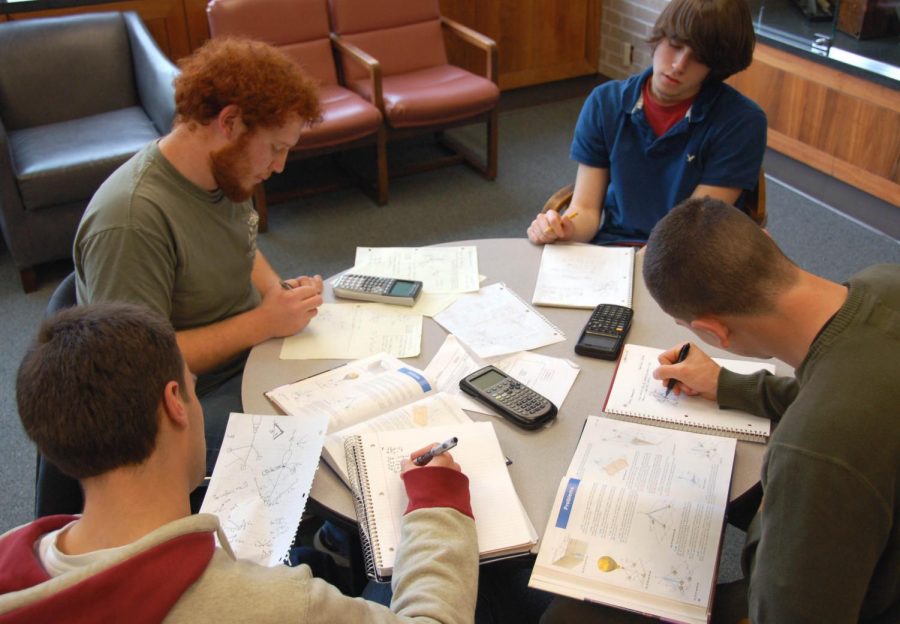Finals week is stressful! Here are some tips to help you begin studying early
Finals can be overwhelming when you don’t know how to schedule yourself. It’s just like anything else, chunk it. However, there are more efficient ways to study and, depending on the course, it might not be that simple. Use whatever works best for you with efficient study tips for the best result.
Dominique Hoche, professor of English, explains that before you study there are technical issues to consider. Hoche said, “Determine whether the final is cumulative or non-cumulative. A cumulative exam means that it will not include any new material. If it is cumulative, then you will need to review what you have learned (or were supposed to learn) over the semester. What did you get right on your exams? Review those questions because they might come up again. What did you get wrong? Review those questions, figure out what went wrong, and fix it. Your professor will make notes as to what students get right and what they get wrong as a class, and quite often those problem questions are the ones that are chosen to come back up on the final exam,”
Take note of what you have missed during class. This will minimize studying, so it’s not as overwhelming. Make a plan. You don’t want to end up studying for one test and ending up not studying enough for another because of it. Write it out on your phone or paper.
She then goes on to explain the non-cumulative test, “If the final exam is non-cumulative, then you will be facing the task of reviewing new material. In that case, you need to find out if it is going to be the same as all the other tests, or is it going to be somehow special? In the humanities, the final exam will often have two parts to it — one part is similar to one of the regular exams held during the semester — but the second part often includes a longer essay section which requires an additional amount of analysis. Be sure to ask your professor about what will be on the final exam — but do not just say ‘what’s going to be on the exam?’ You need to ask a specific question: how many questions will it involve? Fill in the blank, multiple-choice, short or long essay? Is there a hint you can give us as to what we should focus on? Or what we can avoid? Your professor likes specific questions. You might not get an answer, but it doesn’t hurt to ask.”
If your exam is a final essay, make sure to check out the WLU Robinson Writing Center for idea generation, revision and tutoring. For grammar issues, you can visit sites like Grammarly. For citing, there are many sites to choose from.
If you want some virtual instruction, Tiffany Fletcher, Program Director and Associate Professor of Psychology, suggests getting the most out of studying by watching videos given to students in PSYC 101 introduction to Psychology. Fletcher gives a list of videos from Cognitive Psychologist Dr. Steven Crow’s “How to Get the Most out of Studying”: “Video 1: Beliefs that make you fail or succeed (6:50). Video 2: What students should understand about how people learn (7:14). Video 3: Cognitive principles for optimizing learning (5:45). Video 4: Putting together the principles for optimizing learning into practice (9:16). Video 5: I blew the exam, now what? (7:28)”
This information is efficient only if you use your time well. Hoche suggests 3-hour-per-class study sessions. However, I don’t suggest doing it all at once. Chunking it still works in this situation. Dead week is the week before finals week. It’s supposedly the week where there are fewer assignments so you can study. However, be prepared to not have time. Study the weekend before or take the time to schedule everything out. Pressure and procrastination is not your friend in this situation. I’ve learned from personal experience that procrastinating even little things like scheduling can mess up your whole week or even your whole semester. Procrastination can also haunt you in your future career, so now is the time to work on motivation.
So how do you get over procrastination? Hoche explains her stance on procrastination, “If you’ve managed to get this far by using pressure to get over your procrastination, you should seriously rethink your life choices. There are a lot of things that can assist procrastinators, ranging from notebooks to apps to therapy, and that’s sometimes the only thing that works. You know what you have to do — make a decision, make a plan, and stick to it. I have to fight my own tendencies to procrastinate, and I have developed my own tricks to defeat the evil beast. (For me, it’s making lists, and using Post-its! Literally! Everywhere!) You have to find out what works for you.”
Scheduling, in general, is an important and essential tool for college students. Besides post-its and lists, you can schedule things out with reminders on your phone, a physical calendar, or a bullet journal. You may think that bullet journals are messy, but if you get done with what you need to do about three times a week you will never miss an assignment again. If you do choose this tip to use in the future, make sure that you check assignments and emails before you schedule.

Haley Blakemore is a Senior in English Literature with a minor in Journalism from Reeader, WV. Blakemore has been on staff for the Trumpet since 2019....







